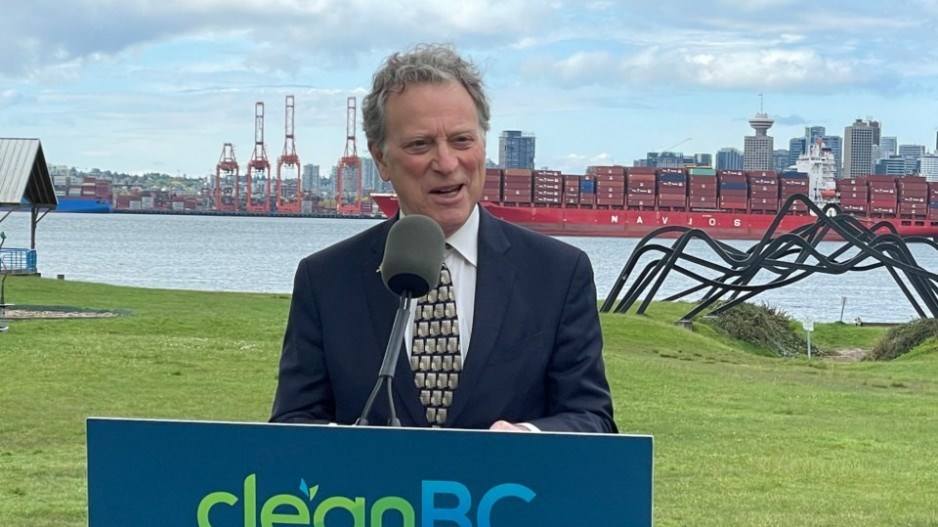The B.C. government has announced a new funding program to help local governments tackle the impacts of climate change that will funnel $76 million towards local projects over the next three years.
The program was announced Monday morning (May 16) in North Vancouver by George Heyman, minister of environment and climate change strategy, and Nathan Cullen, minister of municipal affairs.
The Local Government Climate Action Program will provide “predictable, stable funding” for municipalities, regional districts and First Nations to pay for projects aimed at preparing for and mitigating the impacts of climate change, said Heyman.
Communities will receive the money based on the size of their populations, Heyman said, with a minimum of $38,000 for smaller communities.
Money could go to a variety of projects, and could include converting heating of some civic facilities to electricity to reduce greenhouse gas emissions for example, or “It could be a community that wants to create climate resiliency against extreme heat or against flooding.”
The money could also be used for planning studies or to hire staff to administer the projects, said Heyman.
He pointed to the City of North Vancouver’s Complete Street project, which will add bike lanes and provide trees for shade on Esplanade as an example of the type of project local municipalities are working on.
On the North Shore, the funding will include $301,000 annually for the District of North Vancouver, $236,000 annually for the City of North Vancouver and $204,000 annually for the District of West Vancouver.
Local governments will receive the funding at the end of the summer, according to the province.
Local governments will also be required to show how the projects support climate change preparedness or adaption, must sign on to the BC Climate Action Charter and demonstrate matching funding or in-kind contributions equal to 20 per cent of provincial funding.
Heyman was also asked at the announcement Monday morning how the province intends to help drivers in the Lower Mainland who are currently experiencing record high gas prices and pain at the pump.
Heyman said the government is “acutely aware” of the impact of high fuel prices and inflation in general on affordability. “We’re actively exploring a number of ways that we can alleviate this tremendous economic pressure,” he said.
“The issue of oil prices is one that is not a simple fix,” he said.




